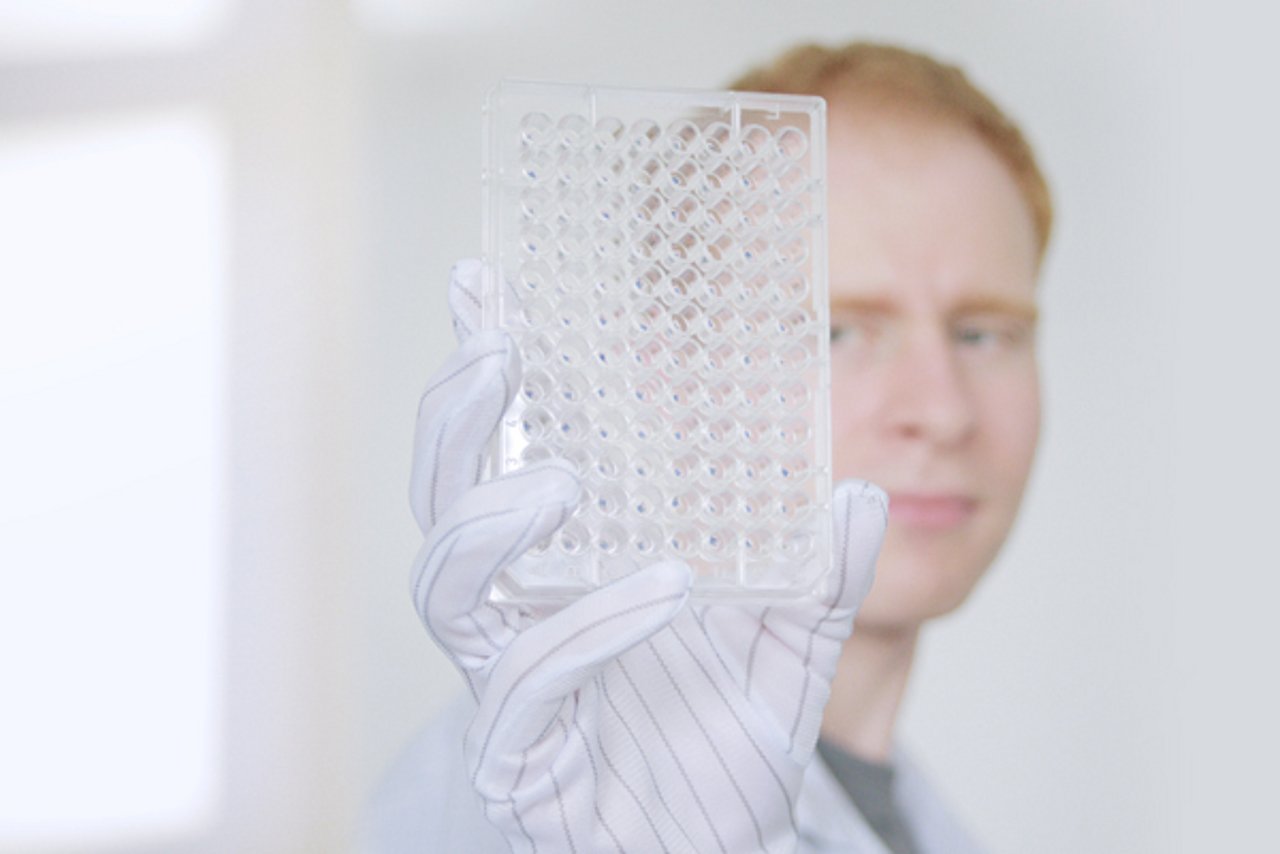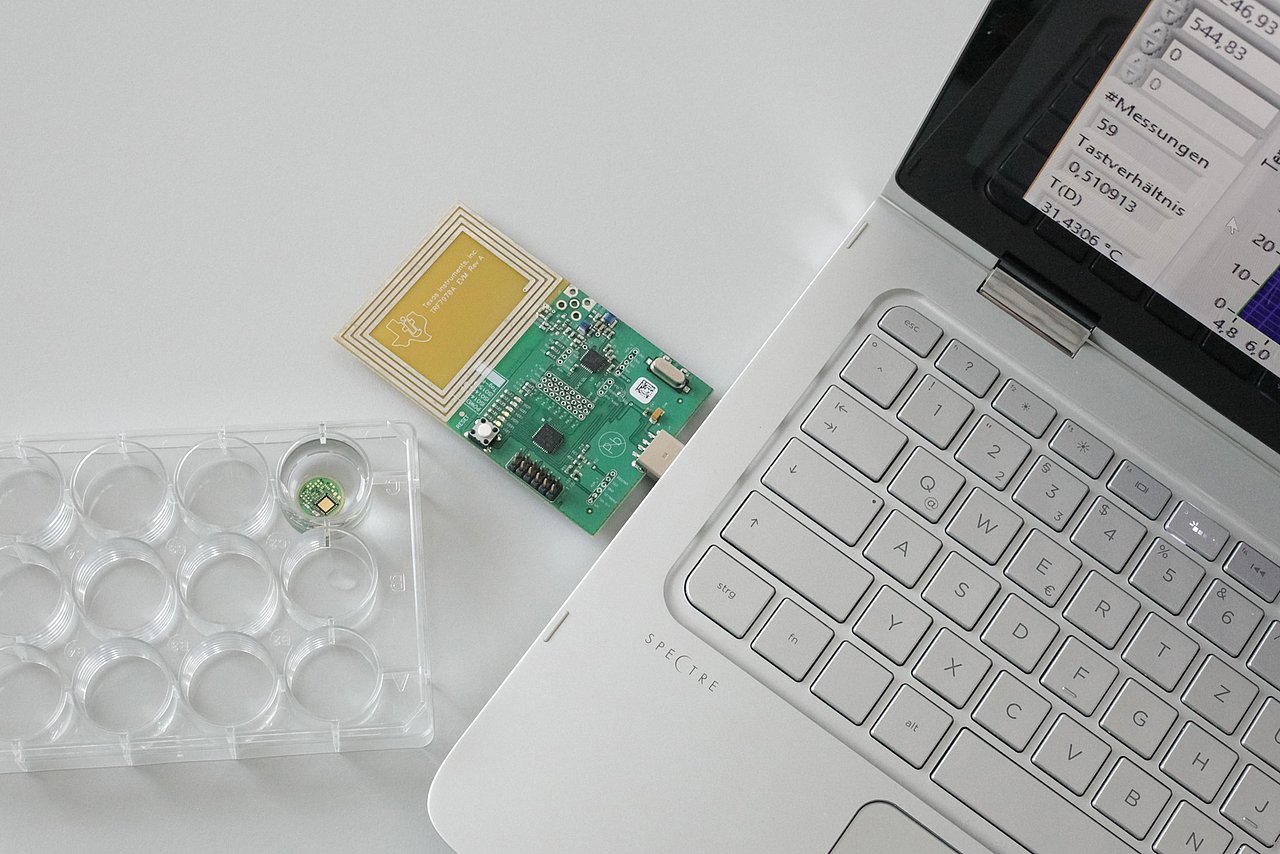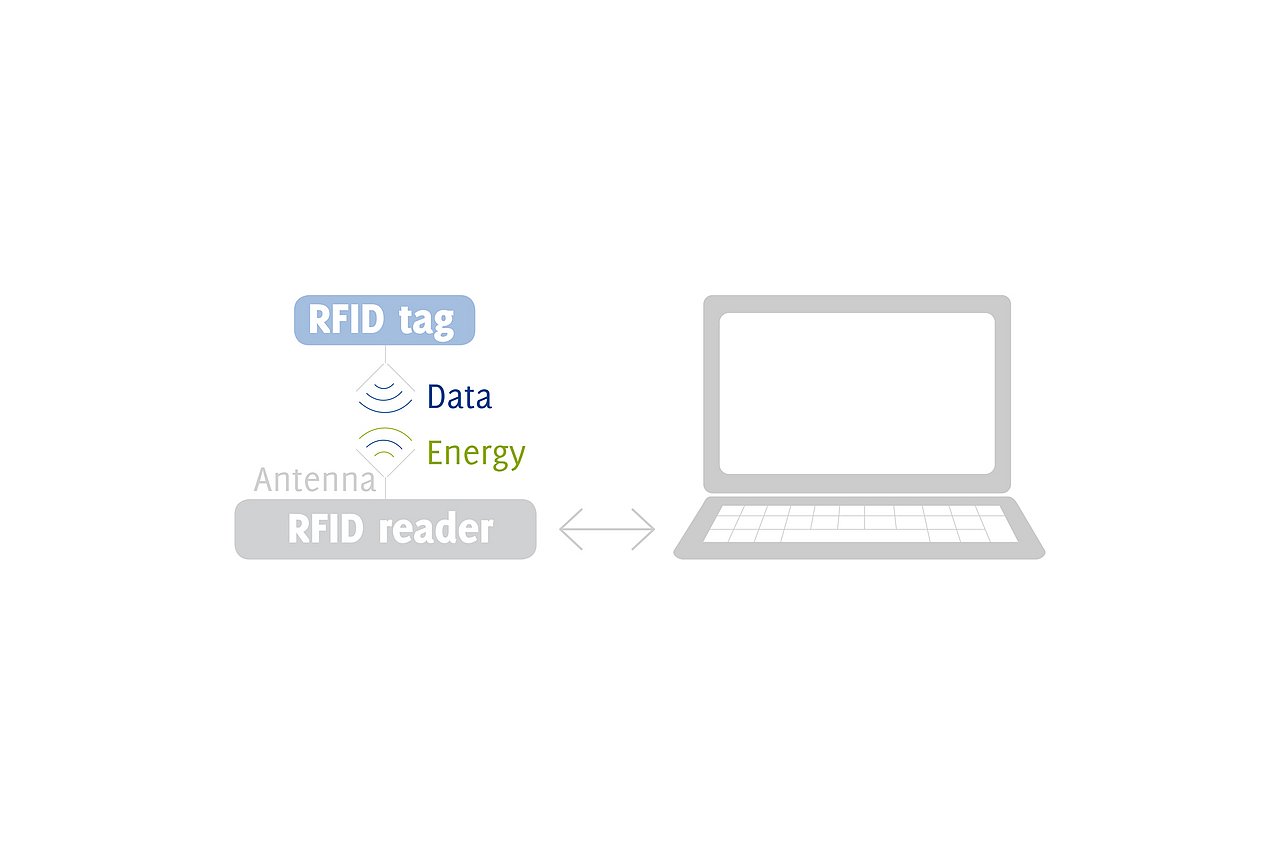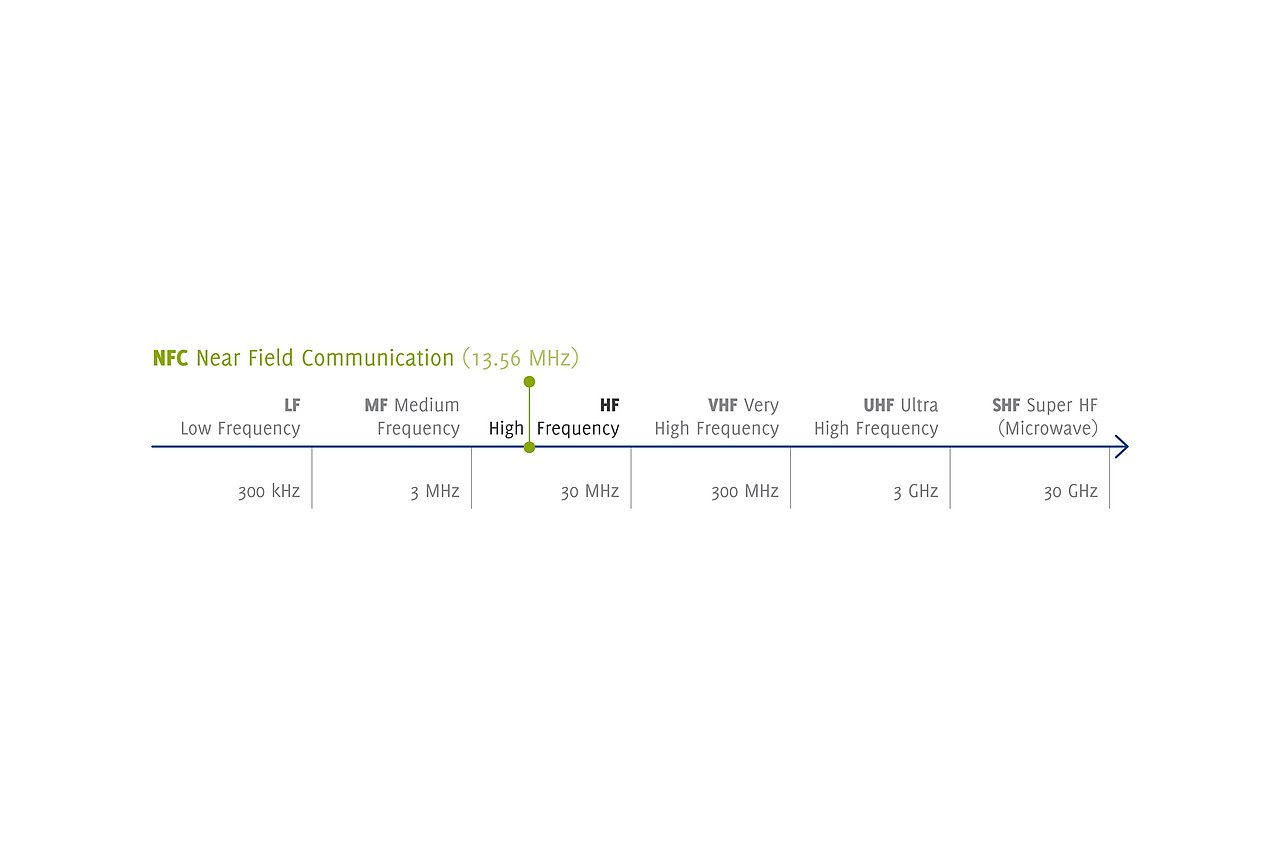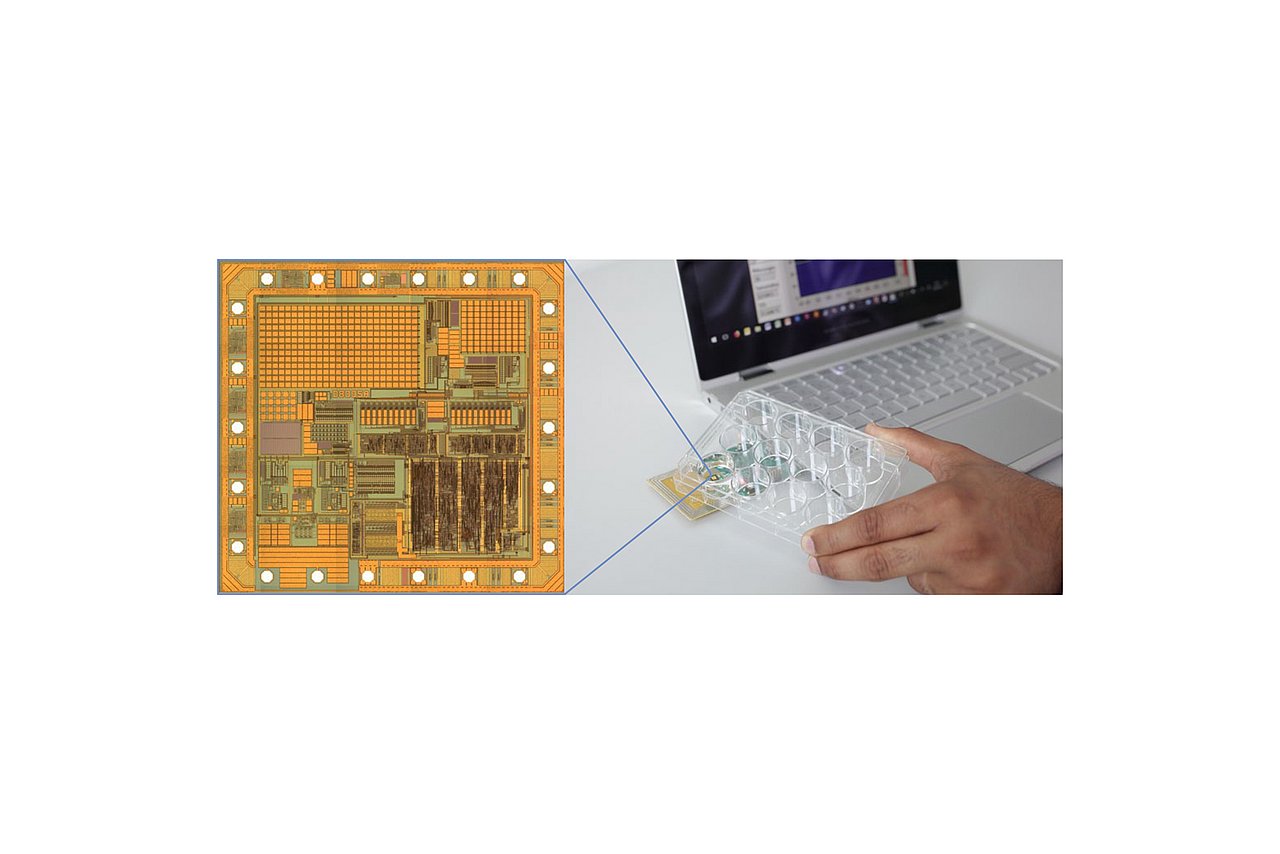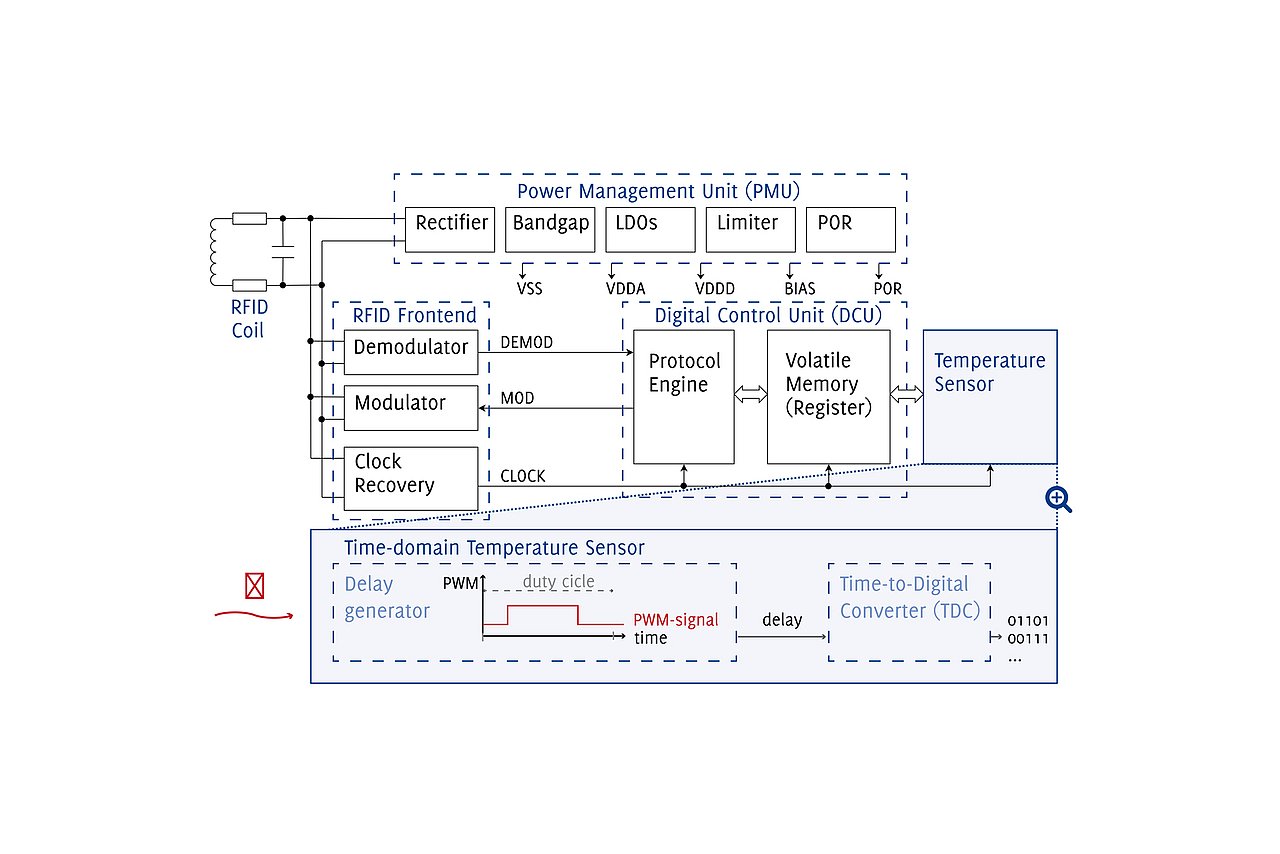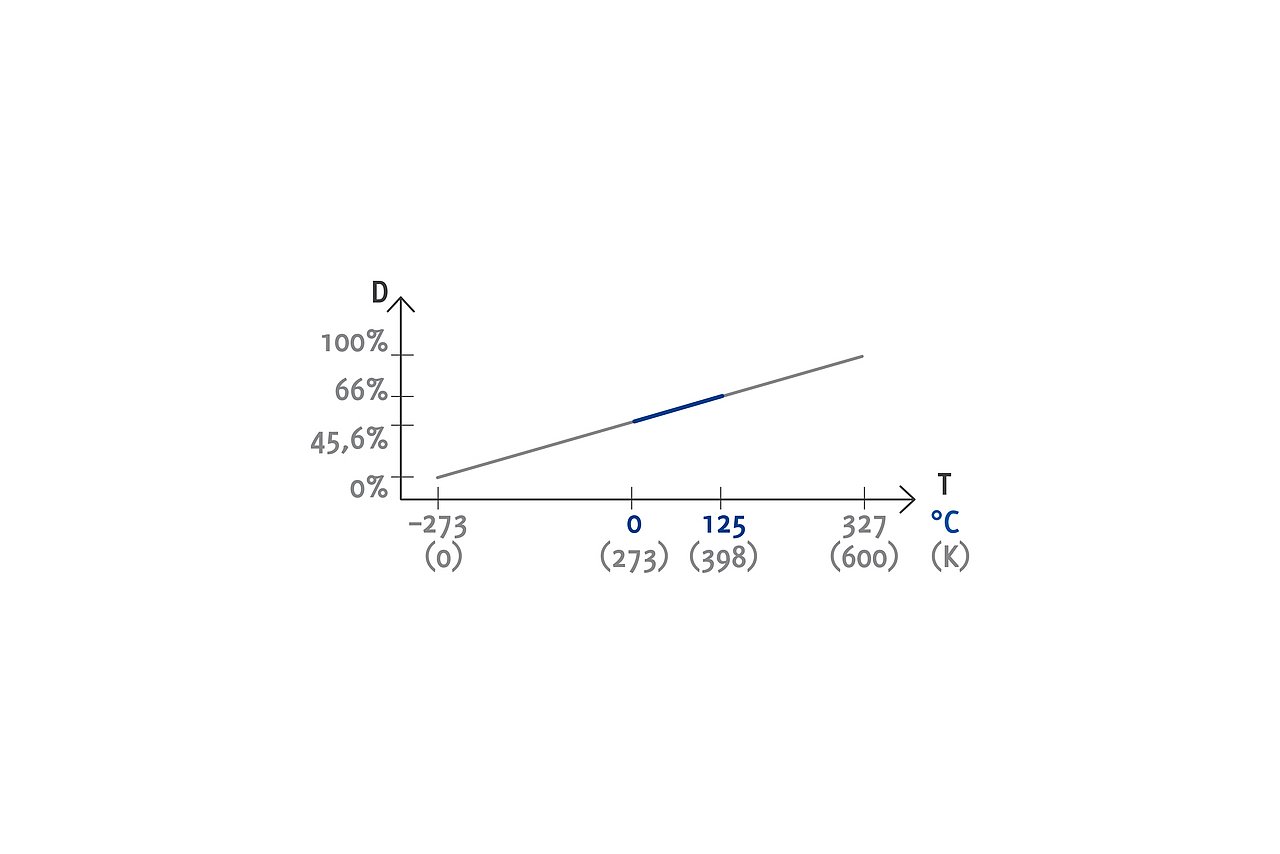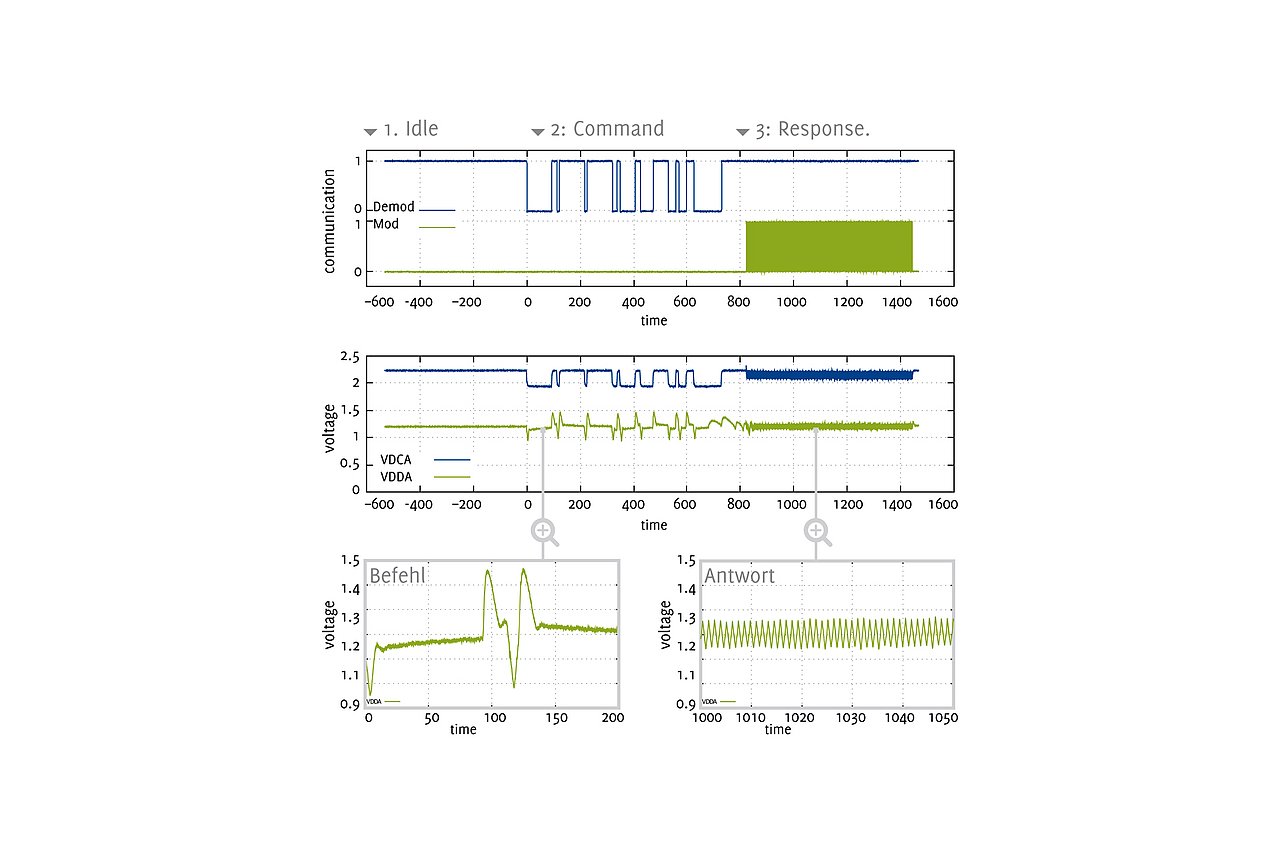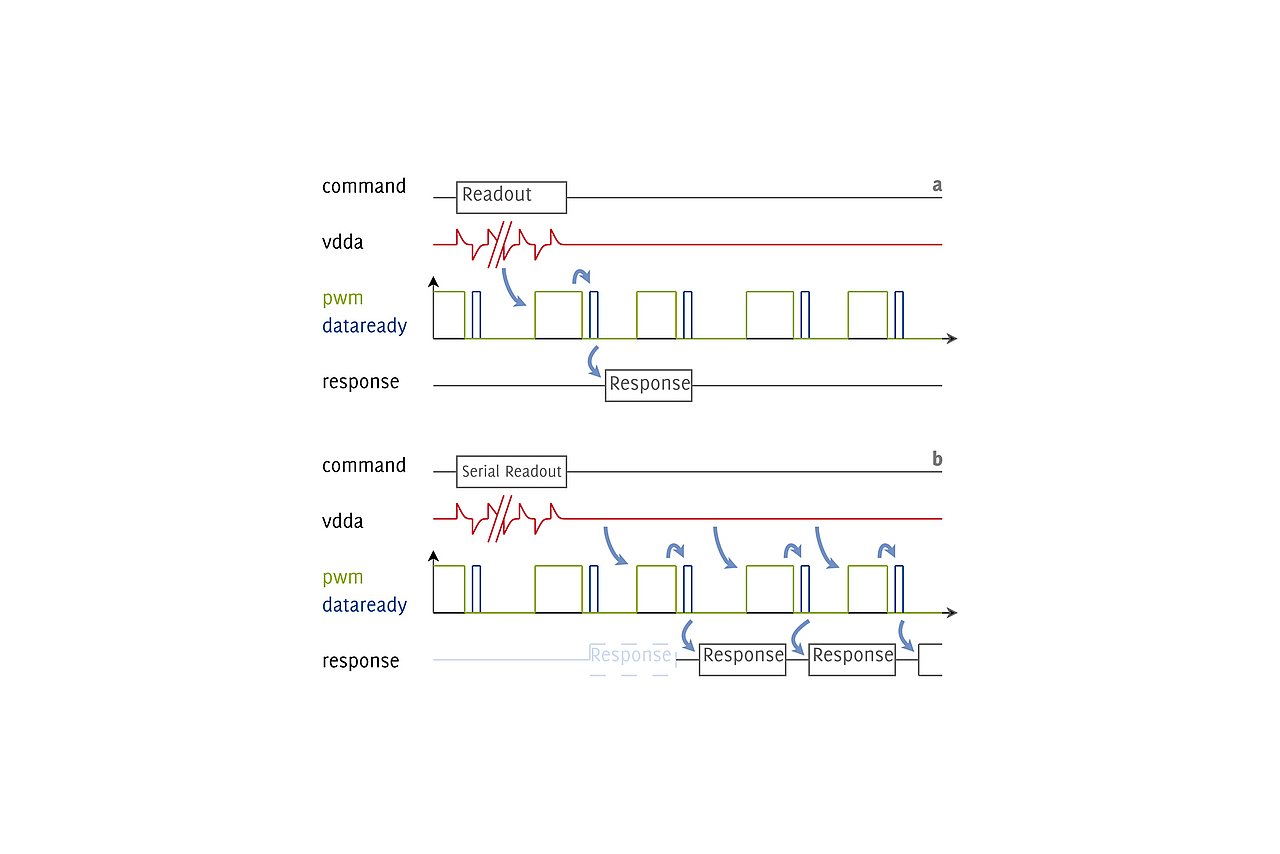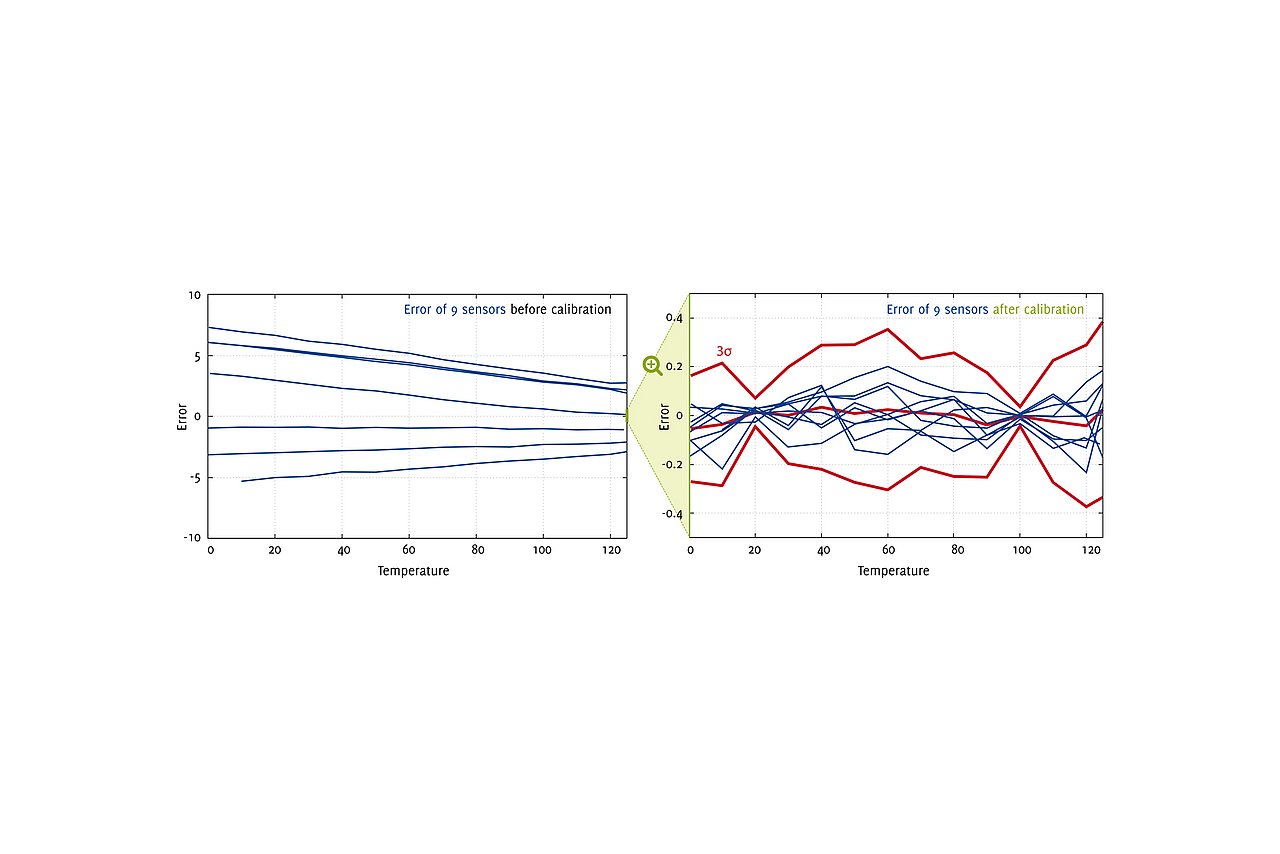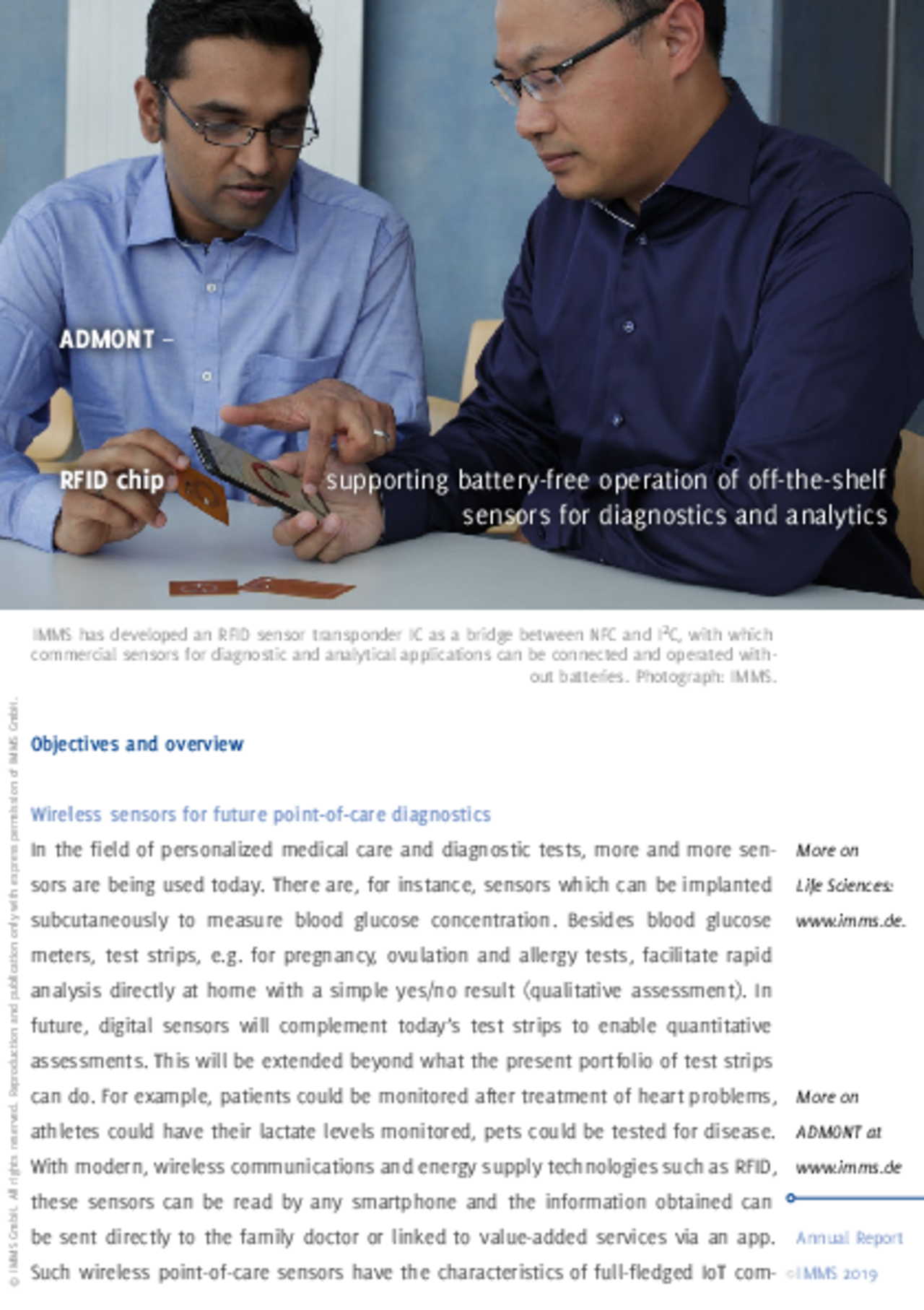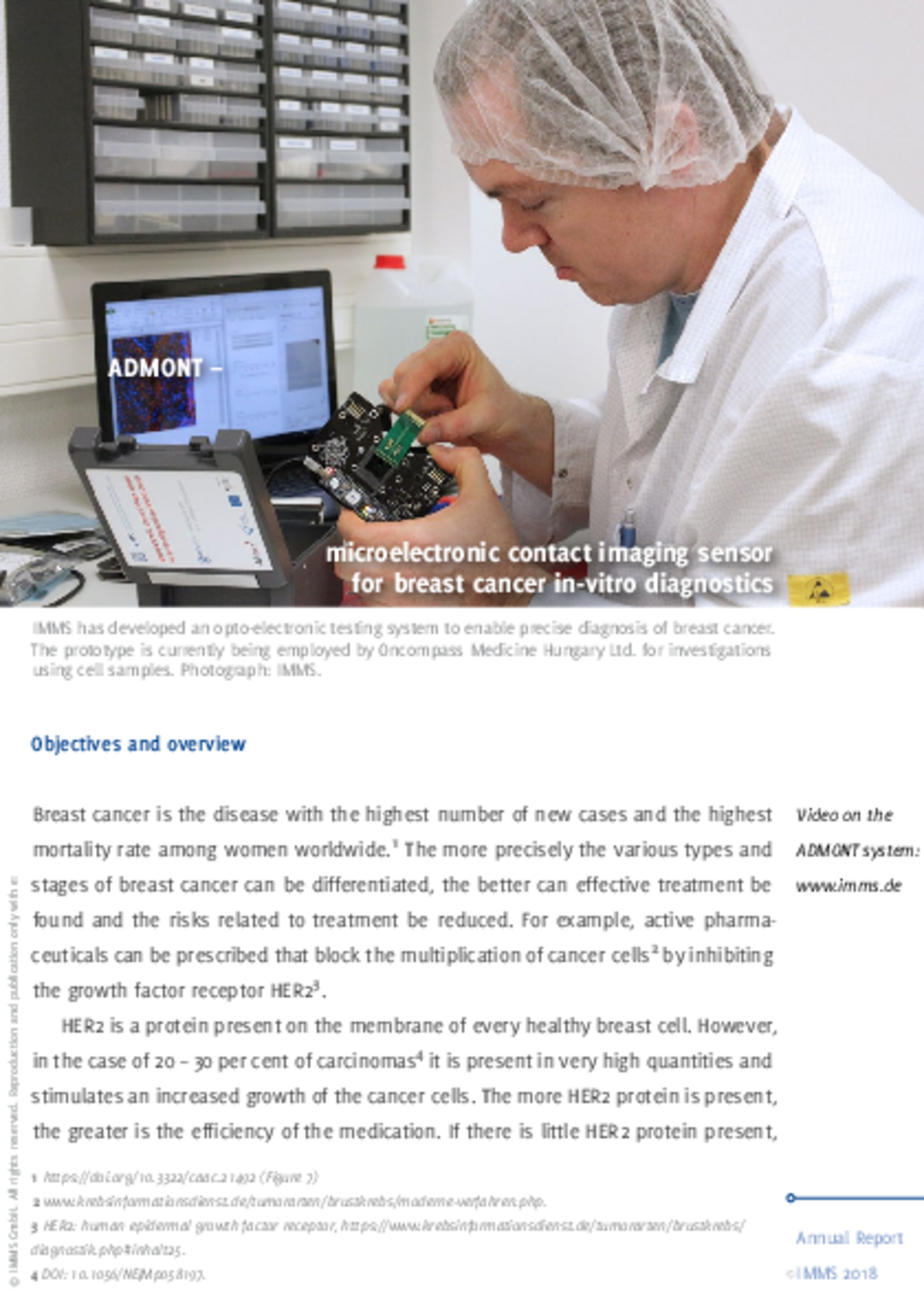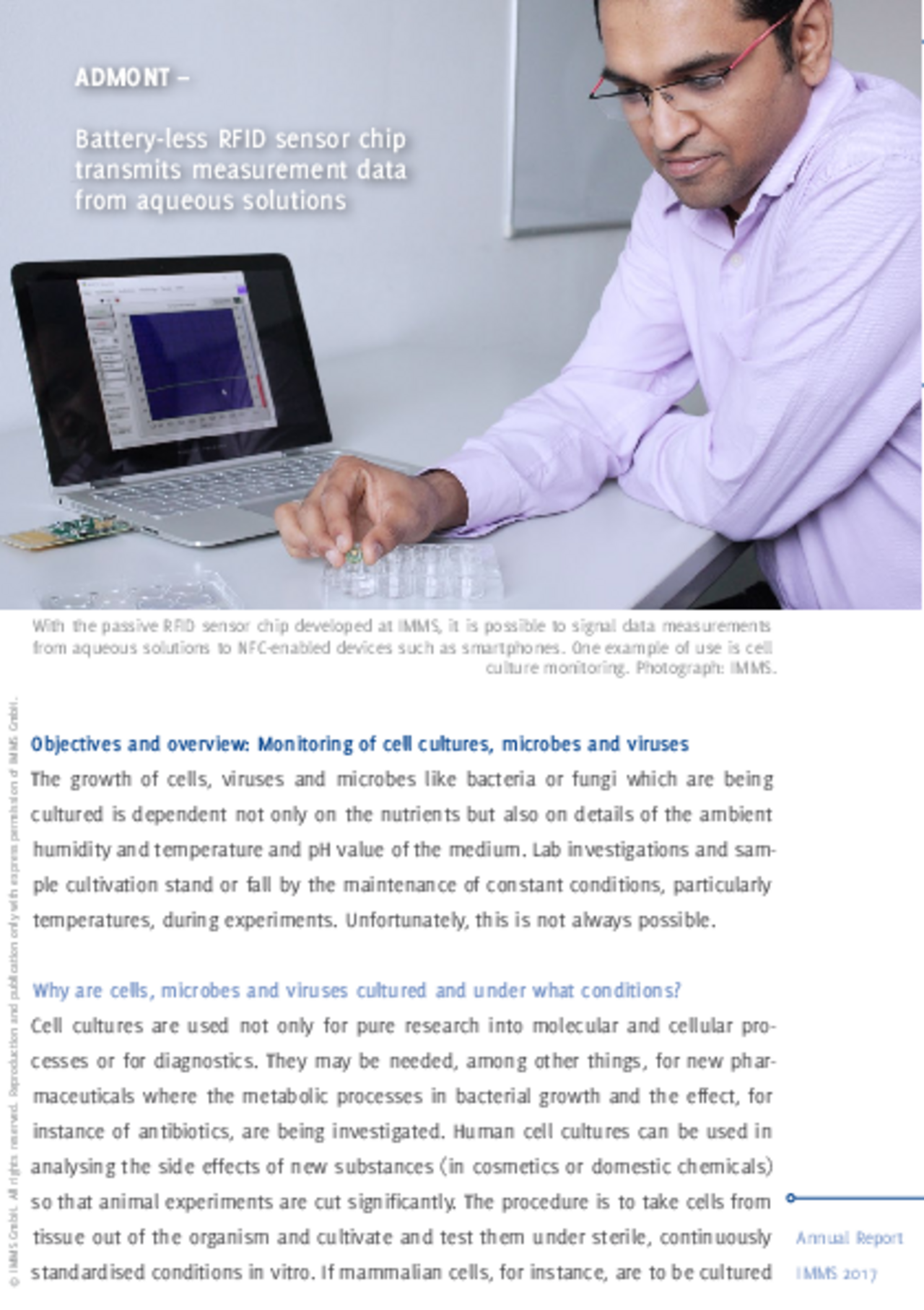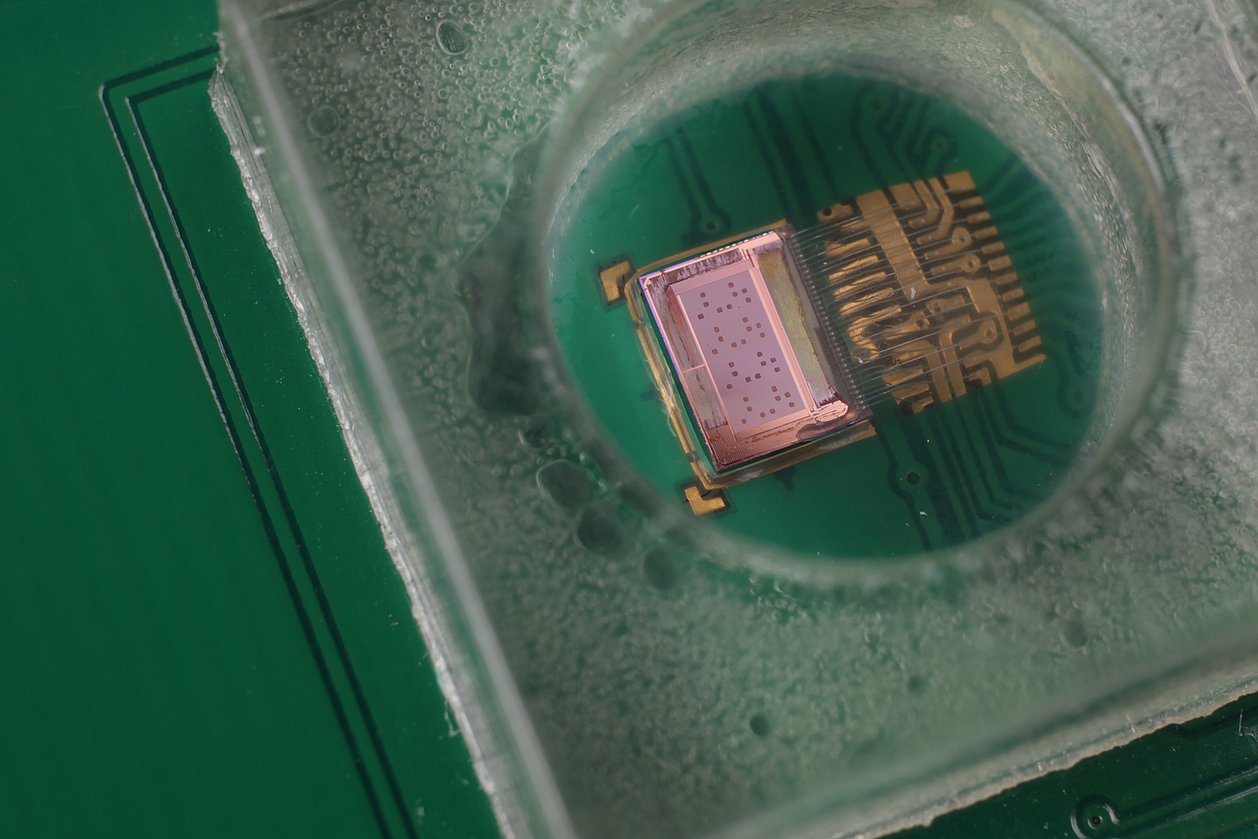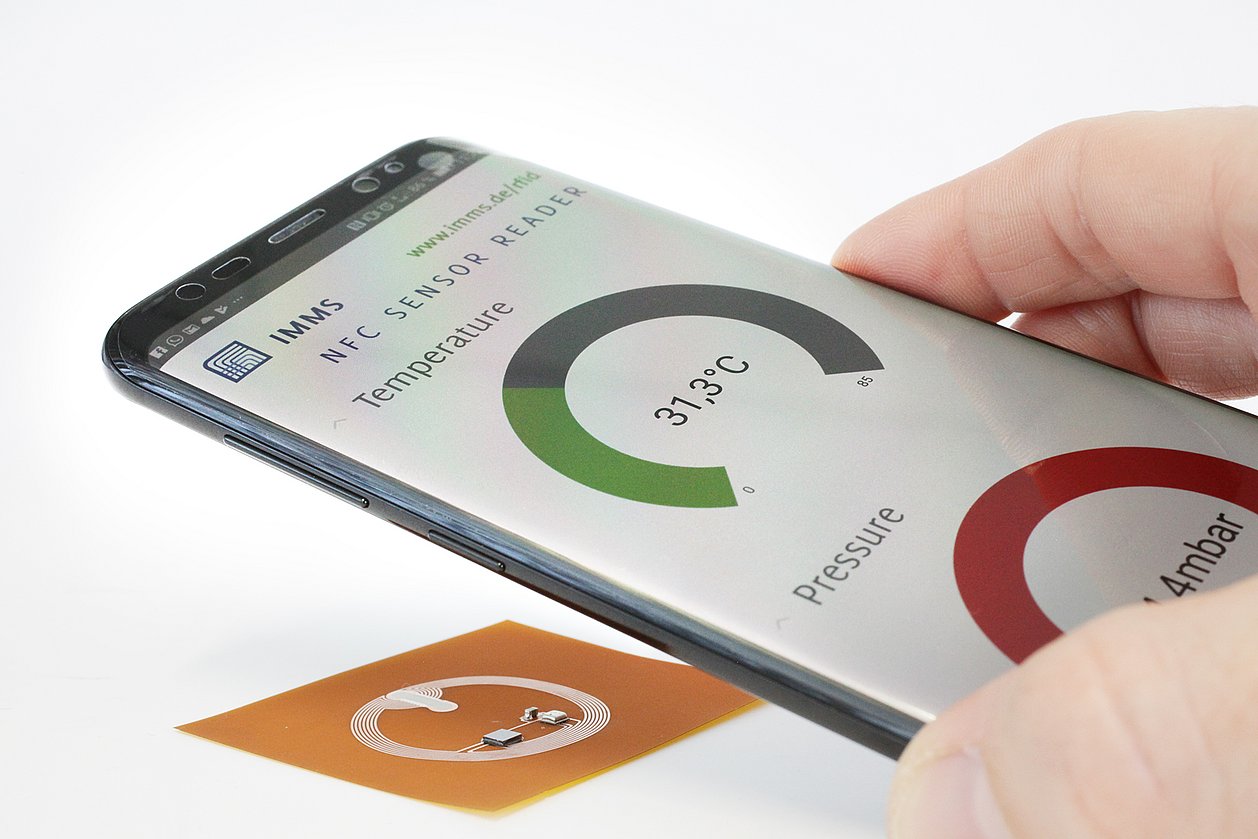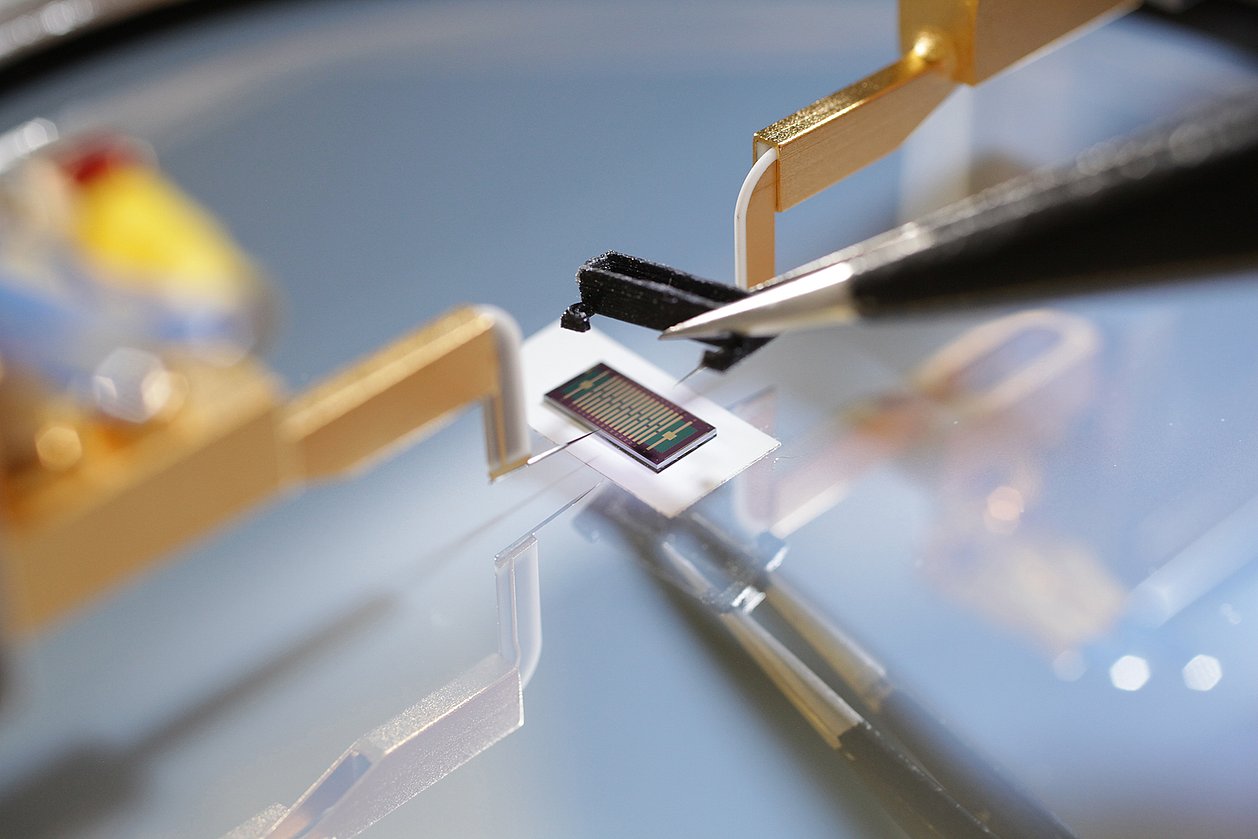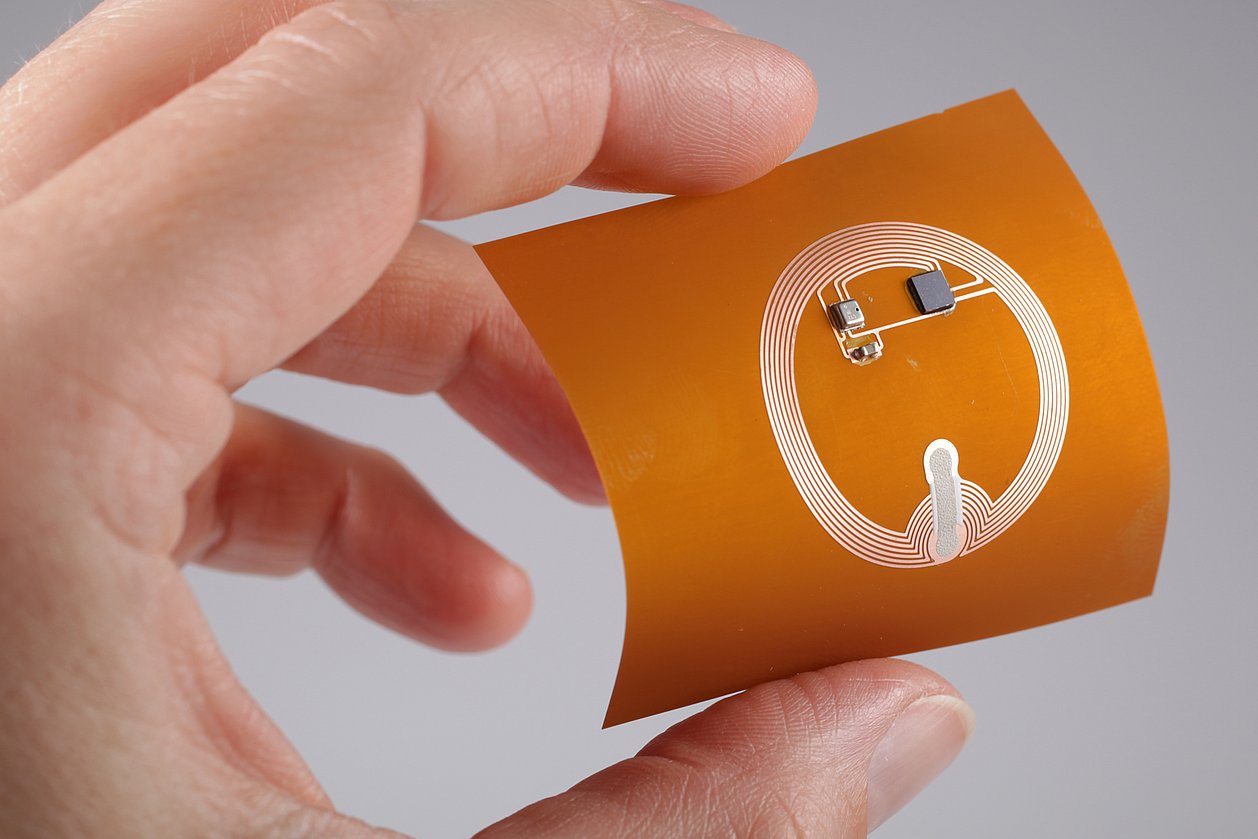Project ADMONT
IMMS has validated novel semiconductor process technology with passive RFID sensors and an in-vitro breast cancer diagnostic system.
The ADMONT project worked on extending CMOS process technologies with sensor components, among other things, to boost novel applications with innovative components and systems in the fields of mobility, energy, health and production. For this purpose, a distributed More-than-Moore (MtM) pilot line was set up by the consortium to prove that the new concepts can be produced with the various technologies. IMMS has used this framework to develop the following solutions, among others.
RFID chip supporting battery-free operation of off-the-shelf sensors for diagnostics and analytics.
The IMMS RFID chip supplies energy to individual commercial sensors with an I2C interface and transmits their measured data to an NFC-capable smartphone or other RFID readout device, contact-free. The integrated energy management system and I2C master enable energy-intensive measurements to be taken at low cost using NFC. The data is processed with an Android app.
Battery-less RFID sensor chip transmits measurement data from aqueous solutions.
The RFID sensor chip developed at IMMS allows NFC-enabled devices such as smartphones to retrieve temperature values, e.g. in cell culture monitoring applications. The challenge was to integrate RFID transponder and temperature sensor on a single chip and to achieve the working ranges and accuracies of commercially available stand-alone sensors. The chip is for use in extremely compact installation spaces.
Microelectronic contact imaging sensor for breast cancer in-vitro diagnostics.
To distinguish types and stages of breast cancer for targeted therapies, it has to date been necessary to initiate a slow, expensive further process of analysis in cases where the initial diagnosis is unclear. So that in future the exact disease classification will be completed in a single stage, IMMS‘ partners are currently investigating cell samples with an optoelectronic test system that IMMS has developed.
Acronym / Name:
ADMONT / Advanced Distributed Pilot Line for More-than-Moore TechnologiesDuration:2015 – 2019
Project website:www.admont-project.eu
Application:
Automation technology and Industry 4.0|Life Sciences|Smart Health| Biosensors| In vitro diagnossis| Multi-parameter sensor networks| BiotechnologyResearch field:Integrated sensor systems
Related content
NFC/HF-RFID transponder IC for Sensor Applications
Muralikrishna Sathyamurthy1.Think Wireless IoT Day on Healthcare and Security, 12 May 2021, online
1IMMS Institut für Mikroelektronik- und Mechatronik-Systeme gemeinnützige GmbH, 98693 Ilmenau, Germany.In-vitro-Diagnostik von Brustkrebs mit einem Kontakt-Bildsensor
Valentin Nakov1. Hendrik Härter2.in Elektronik Praxis, Ausgabe 14/2020, Seite 44 – 46, online: www.elektronikpraxis.vogel.de/in-vitro-diagnostik-von-brustkrebs-mit-einem-kontakt-bildsensor-a-950232
1IMMS Institut für Mikroelektronik- und Mechatronik-Systeme gemeinnützige GmbH, Ilmenau, Germany. 2Fachzeitschrift Elektronik Praxis.NISP: An NFC to I2C Sensing Platform with Supply Interference Reduction for Flexible RFID Sensor Applications
Jun Tan1. Muralikrishna Sathyamurthy1. Alexander Rolapp1. Jonathan Gamez1. Moataz Elkharashi1. Benjamin Saft1. Sylvo Jäger2. Ralf Sommer1.in IEEE Journal of Radio Frequency Identification, vol. 4, no. 1, pp. 3-13, March 2020, DOI: doi.org/10.1109/JRFID.2020.2967862
1IMMS Institut für Mikroelektronik- und Mechatronik-Systeme gemeinnützige GmbH, 98693 Ilmenau, Germany. 2Micro-Sensys GmbH, Erfurt, Germany.La petite puce – Customized Chip Design for optical and wireless Sensors
Peggy Reich1.Tech Biz Day – From Innovation to Medical Electronics, 17 October 2019, Lyon, France
1IMMS Institut für Mikroelektronik- und Mechatronik-Systeme gemeinnützige GmbH, 98693 Ilmenau, Germany.

Press release,
Forschung und Entwicklung des IMMS für die Bioanalytik auf der MEDICA 2019
IMMS bietet Partnern für ihre Life-Science-Anwendungen F&E zu elektronischen Komponenten und Systemen

Press release,
Batteryless RFID sensor chip sends measured data out of aqueous solutions
IMMS demonstrates prototype at MEDICA, Nov 13th – 16th, Hall 3/G60

Press release,
IMMS presents three developments at MEDICA 2017
Nov 13th – Nov 16th 2017, Düsseldorf (Germany), joint booth DiagnostikNet BB, hall 3/G60
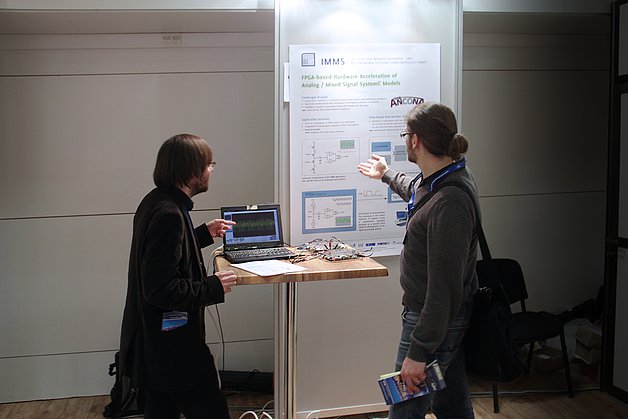
Event,
SMACD + PRIME 2019
5 lectures at the International Conference on Synthesis, Modeling, Analysis and Simulation Methods and Applications to Circuit Design and one lecture at the 15th Conference on PhD Research in Microelectronics and Electronics
Contact
Contact
Eric Schäfer, M. Sc.
Head of Microelectronics / Branch Office Erfurt
eric.schaefer(at)imms.de+49 (0) 361 663 25 35
Eric Schäfer and his team research Integrated sensor systems, especially CMOS-based biosensors, ULP sensor systems and AI-based design and test automation. The results are being incorporated into research on the lead applications Sensor systems for in-vitro diagnostics and RFID sensor technology. It will assist you with services for the development of Integrated circuits and with IC design methods.
Funding
The ADMONT project has received funding from the ECSEL Joint Undertaking under grant agreement No 661796. This Joint Undertaking has received support as Innovation Action from the European Union's Horizon 2020 research and innovation programme, the German Federal Ministry of Education and Research (BMBF) and Finland, Sweden, Italy, Austria, Hungary. The IMMS sub-project ”Design of intelligent in vitro diagnostic und bioanalytical sensor and actuator systems“ has received funding under the reference 16ESE0057.


